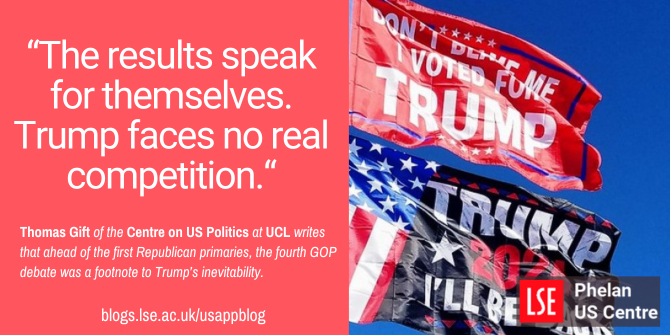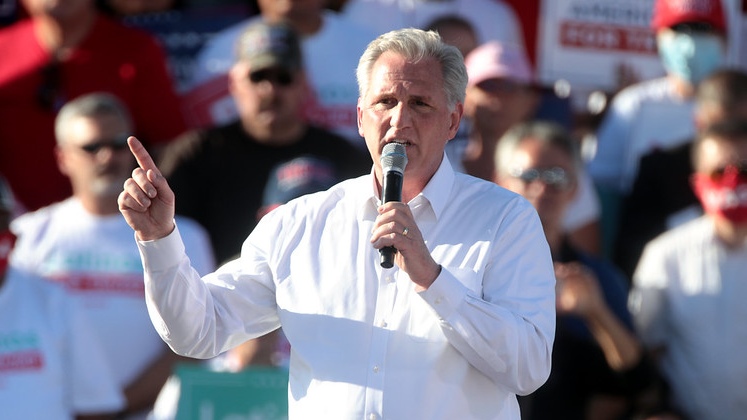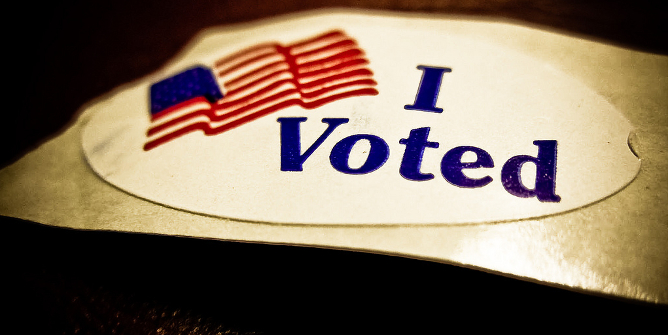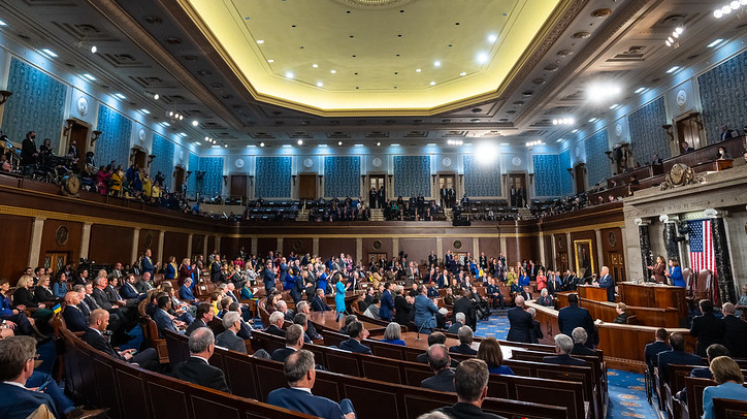 On Wednesday night, four Republican presidential hopefuls squared off in the party’s fourth and last debate before the January Iowa Caucuses. Former President Donald Trump again didn’t attend, as the other candidates engaged in fiery back-and-forths over issues ranging from foreign policy to immigration to Trump himself. In this Q&A, Thomas Gift breaks down the debate and examines the state of the primaries as voters prepare to head to the ballots next month.
On Wednesday night, four Republican presidential hopefuls squared off in the party’s fourth and last debate before the January Iowa Caucuses. Former President Donald Trump again didn’t attend, as the other candidates engaged in fiery back-and-forths over issues ranging from foreign policy to immigration to Trump himself. In this Q&A, Thomas Gift breaks down the debate and examines the state of the primaries as voters prepare to head to the ballots next month.
What were your impressions of last night’s debate?
There’s no doubt this debate was more combative than previous ones. That’s partially because the field has narrowed down to just four candidates (from a total of eight back in August), and there was an actual back and forth to the dialogue. You could feel a sense of urgency. Former South Carolina Governor Nikki Haley and Florida Governor Ron DeSantis are both vying to be the, not just a Trump alternative heading into Iowa. So, it’s not surprising that the evening turned into a slugfest. It really felt to me like a tag-team effort, where you had DeSantis and Vivek Ramaswamy throwing grenades at Haley, who’s risen in the polls of late, and Haley trying desperately to defend herself alongside former New Jersey Governor Chris Christie. But ultimately, the event smacked of four words: “too little, too late.” These debates still feel like a footnote to the main story of Trump’s inevitability. Trump framed the narrative early on that this isn’t a primary; it’s a coronation. Boycotting the debates has kept Trump above the fray and reinforced an aura of inexorableness to his nomination. It’s also enabled him to avoid wading into more controversial topics like abortion that have become an Achilles’ heel for Republicans. The results speak for themselves. Trump faces no real competition.
What are you looking at most heading into Iowa?
I think you can take a Trump win in Iowa as inevitable. And then there are really three questions. One, who clinches second place? Two, by how much? And three, is it enough to force out some of the more marginal candidates? Despite the conventional wisdom, there’s a clear openness for a non-Trump candidate in the GOP. According to a recent Harvard poll, for example, roughly six in ten Republicans say they’d entertain voting for someone not named Trump. But for that to happen, there needs to be consolidation—fast. And that won’t occur if DeSantis and Haley are running neck and neck in the low to mid-teens, and Christie and Ramaswamy split another five to eight percent of the vote. I think there are a lot of parallels to 2016 where Marco Rubio, Ted Cruz, Jeb Bush, and John Kasich could all plausibly make the case that they could be the Trump alternative. But all they did in the end was split the non-Trump vote. So, the math isn’t insuperable, but the incentives might be, especially in the context of the state-level electoral formulas. The basic equilibrium is simple: Everyone stays in the race and does what’s best for them, but that undermines the collective goal of beating Trump.

“Pro-Trump flags & anti-Biden (”Let’s Go” (CC BY-NC-ND 2.0) by Gilbert Mercier
Who’s your bet on who’s most likely to garner that coveted second place in Iowa?
Nikki Haley certainly has the momentum right now. She’s done well in the debates. She won the coveted endorsement of Americans for Prosperity Action. That’s the Koch-backed network that has big money and outreach capacity. And she’s got the electability argument on her side. A recent Marquette poll showed she’d beat Joe Biden in a one-on-one matchup by double digits. But I think the operative question for Haley is whether she wants to take the kinds of risks that would be needed to beat Trump. That’s especially true when it’s no secret that she’s a possible vice presidential pick. Haley has always chosen her battles with Trump carefully. When she was UN ambassador, she didn’t rock the boat, except in a few isolated cases in Trump’s dealings with Russia. Haley’s taken basically that same approach as a candidate. She did recently say that Americans couldn’t afford four more years of Trump’s “chaos, vendettas, and drama.” But that’s mild. To beat Trump, she’d have to go through him, not around him. And I think for Haley, the risk-reward calculus of really taking the knives out when the odds of beating Trump are so low might not be worth it.
How does Joe Biden fit into all of this?
If you’re Joe Biden, it’s hard to look at the data right now and be encouraged. A New York Times poll last month showed Trump beating Biden in five of six swing states. A new Harris poll this week showed Trump leading Biden among independent voters. You’ve got the president hemorrhaging votes among the youth demographic. The numbers there look grim. Add to that the real possibility of a third-party candidate like Joe Manchin or Robert F. Kennedy, Jr, siphoning off liberal votes, and it’s definitely a precarious situation. One thing Biden can do is look to 2023’s off-year elections, and say Democrats again outperformed expectations like in the 2022 midterms. So maybe the polls are systematically underestimating Democrat support. But another way of looking at it is that Democrats, who have really been buoyed by the abortion issue at the state level, have a lot going for them. Jobs numbers are still good. Inflation has flatlined. And yet Biden, still hasn’t seen a spike in his favorabilities. So maybe his current numbers are even softer than he thinks. That’s a real concern the White House needs to take seriously.
- These remarks are based in part on interviews by Thomas Gift for CNN “Newsroom” and BBC News on December 7.
- Please read our comments policy before commenting.
- Note: This article gives the views of the author, and not the position of USAPP – American Politics and Policy, nor the London School of Economics.
- Shortened URL for this post: https://bit.ly/3Rad7OR






